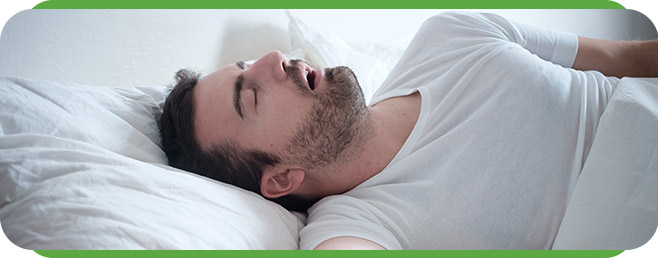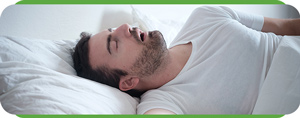Dental Device for Sleep Apnea Questions and Answers
If you are experiencing sleep apnea, come to Koala® Center For Sleep & TMJ Disorders to find the best dental device for your unique situation. For more information call us at one of our clinics today or request an appointment online. We serve patients from all over the USA. Locations in Bloomington IL, Peoria/Dunlap IL, El Paso TX and Wausau WI.


Table of Contents:
How do oral devices work for sleep apnea treatment?
Can a dental appliance help sleep apnea?
What are the benefits of oral appliance therapy?
Sleep apnea is a serious sleep disorder that occurs when a person’s breathing becomes interrupted during sleep. People with untreated sleep apnea experience pauses in breathing multiple times during sleep, and in severe cases, these numbers can reach the hundreds. The three types of sleep apnea include obstructive (OSA), central (CSA), and mixed, which is a combination of both OSA and CSA. Obstructive sleep apnea, the most common of the three, occurs when the upper airway is blocked either partly or completely during sleep.
For patients with mild to moderate obstructive sleep apnea, two types of devices can be made: a dental appliance or an oral mandibular advancement device. These devices prevent the tongue from blocking the throat and/or advance the lower jaw forward to help keep the airway open during sleep. A dentist with expertise in oral appliances for sleep disorders can determine if this treatment is best for you.
Oral devices work by stabilizing the airway, allowing oxygen to pass through unrestricted. During an apnea episode, the airways become restricted and the diaphragm and chest muscles work harder as the pressure increases to open the airway. Breathing usually resumes with a loud gasp, or after the body aggressively jerks itself to a partially awake state. These episodes can interfere with the quality of sleep, cause heart rhythm problems, and reduce the flow of oxygen to vital organs.
Oral devices work by holding the jaw in a fixed position—typically forward—throughout the night, or by holding the tongue so it does not disrupt airflow mid-sleep. This prevents sleep apnea episodes from occurring and can greatly improve the quality of sleep without disturbing those around them.
Yes, a dental appliance can help sleep apnea. By holding the jaw forward, oral appliances allow air to pass through the airways freely. This can help treat mild to moderate cases of sleep apnea, with symptoms significantly reduced or even completely diminished. Dental appliances are among the most common treatment option for sleep apnea and can be designed and fitted at a dentist’s office.
Oral appliance therapy offers many of the same health benefits as other treatment methods, including:
– Reduces the risk for diabetes, heart disease, and stroke
– Improves daytime alertness, concentration, and emotional stability
It also offers the following additional benefits:
Ease of use — Many patients prefer to use an oral appliance because it can be easy to wear. For most people, it can take a few weeks to get used to sleeping with an oral appliance.
Small and easy to transport — Traveling with sleep apnea is easy with an oral appliance. Unlike other sleep apnea treatments, oral appliances are small enough to fit in a purse or carry-on bag.
If you or someone you love has sleep apnea and does not want to use a CPAP machine, an oral appliance may be the solution you have been looking for! The kind and caring professionals at Koala® Center For Sleep & TMJ Disorders can help you find the best treatment for your unique situation. We are dedicated to delivering the highest level of service at each visit, for every patient. Call us today to book an appointment. We look forward to serving you!

Additional Services You May Need
▸ KoalaKIDZzz®
▸ Sleep Apnea
▸ Snoring
▸ TMJ Disorder
▸ Fatigue
▸ Sleep Disorders
▸ Weight Loss
▸ CPAP Alternative
▸ Oral Appliances




